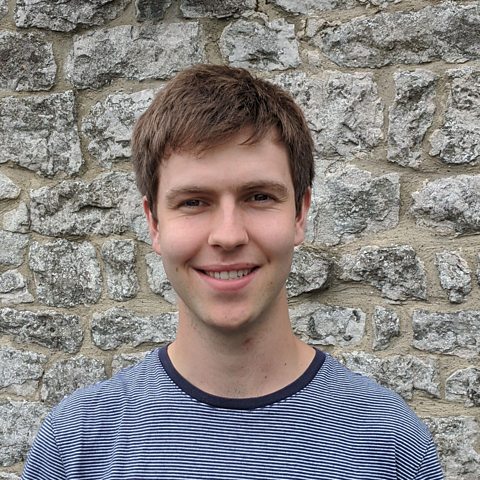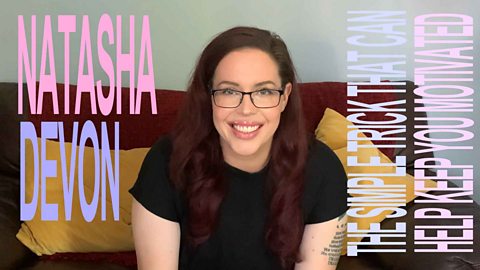This article was first published in July 2020.
If you have just had your GCSE results and they are not what you hoped for, don't worry. Other people have been through it, and survived to tell the tale. Here two people tell of their experiences with GCSEs and Scottish Nationals – and what they’re up to now.

I struggle with exams – but I found a different path
Caoimhe is 19 and lives in North Yorkshire. She struggled with her GCSE exams and had to resit Maths. She left college in her first year, after moving areas. She has since found her vocation and a route to university through an Access to Higher Education Diploma.
“I have always struggled with exams: I felt as though I wasn’t smart enough to get to where I want to be. I did make it to college but four months in I felt like I was struggling and I thought maybe education just is not for me.
“We moved areas and I left college until the following September. I then did a Level 2 Diploma in Beauty Therapy, which had always been an interest of mine. I received Distinctions for all my work.

I have always wanted to work with the police or do something criminology-based.
“I have recently done an Access To Higher Education Diploma (Social Science), which involved Psychology and Sociology. It was all coursework based, with just one exam for each subject. I have yet to receive my certificate but I passed! I am currently taking a gap year and will go to university next year.
“Although I am not exactly where I want to be, I know that I will get there. I want to work with the police or something related. It has been something I’ve wanted to do since high school. At university I plan to study Criminology.
“My experience shows it is possible. All you can do is try your best – that’s what my grandparents and mum told me. There are lots of alternatives with apprenticeships and one-year courses. Just be confident.”
Ben Jordan is Head of Policy at UCAS. He says: “Access to Higher Education Diplomas are a great pathway for people who have had a gap from education or want to change careers. You can register with the and select your preferences, and you will get personalised content about the different pathways you can take, like Access to Higher Education, work experience, and advice on apprenticeships and traineeships.”


I felt terrible when I got bad results – but I learned so much from it
Sholto is 22 and he has just finished a degree in Politics at Edinburgh University. He studied for eight Standard Grades, which were the Scottish equivalent of GCSEs*. Sholto didn’t do as well as he – or his teachers – expected. He now thinks that was an important turning point in his life.
“I was one of those students who teachers expected to do quite well, but in reality no one can do well without working hard. I did far, far worse than I had hoped; and I questioned whether I should be going onto a higher level of difficulty.

I still remember the feeling of failure.
“I had a feeling I wouldn't do so well in the Sciences, but I had no idea I would do so badly in subjects like History, Modern Studies and Drama. I got mostly 3s, with one 1. My friends all got eight 1s. After seeing my results – and also seeing my friends do so well – I felt terrible. I had just come back from a family holiday, and I still remember the feeling of failure.
“I am lucky to have a hugely supportive family. My mum asked me how I felt, and told me that she only wanted me to be happy. If that meant leaving school and trying something else, that was okay; but if I wanted to do well, and pursue university, I had to work at it. It was then that I understood 'revising' is not a process of a few weeks – it is a year of being dedicated.
“I went back to school and practically begged the teachers, saying I was really motivated to succeed. I then built working relationships with teachers, started asking questions, and tried hard to do my best. I stopped thinking about the long term, and started focusing on that next essay, that next lesson… I achieved strong Higher results (nearly all As), I was accepted to the University of Edinburgh, and I'm now hoping to study Communications for my Masters.
It didn't feel like a lightbulb moment then, but now it does.
“I look back on that time now as the moment my attitude changed. Asking questions is something people can go their whole lives never doing… but they should. At school, people are scared to be judged. Don't be. Teachers like it, and a teacher who thinks you care will be more likely to be approachable for your studies.
“I also began to learn how important it is not to judge yourself against others. Everyone has their own way of doing things, and that's fine. Try and focus on your own progress.
“On results day, don't see this as 'the end'. It absolutely isn't. Take it as an opportunity to think more about the choices you make. That time taught me a lot about myself, like the ability to get back up after being knocked down. You always see people saying it's easy to quit – they're right. It's hard to sit at the kitchen table and try and learn about the founding principles of the welfare state… But push through – you'll start seeing results.”
Ben from UCAS says: “If you are unhappy with your grades, you can appeal them, or try again later. Or you can look at alternative options like apprenticeships and employment."
*Students now study for National qualfications from the age of 14, as part of the Scottish Government’s Curriculum for Excellence.

For more awesome advice and top tips for before, during and after results day, check out our results day section of our Exams and Revision page.

If you need support
You should always tell someone about the things you’re worried about. You can tell a friend, parent, guardian, teacher, or another trusted adult. If you're struggling with your mental health, going to your GP can be a good place to start to find help. Your GP can let you know what support is available to you, suggest different types of treatment and offer regular check-ups to see how you’re doing.
If you’re in need of in-the-moment support you can contact , where you can speak to a counsellor. Their lines are open 24 hours a day, 7 days a week.
There are more links to helpful organisations on ґуПуґ«ГЅ Action Line.

Dr Radha: Healthy ways to express your feelings
Check out Dr Radha's top tips for processing your feelings during difficult times.

The simple trick that can help you stay motivated
Natasha Devon talks about different types of motivation.

Nationals results day 2024: Everything you need to know
If you are taking your exams this summer here is a guide to everything you need to know about National Qualifications results day in 2024.
